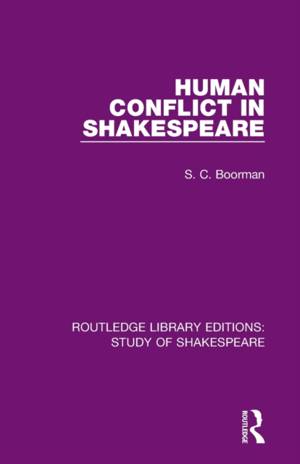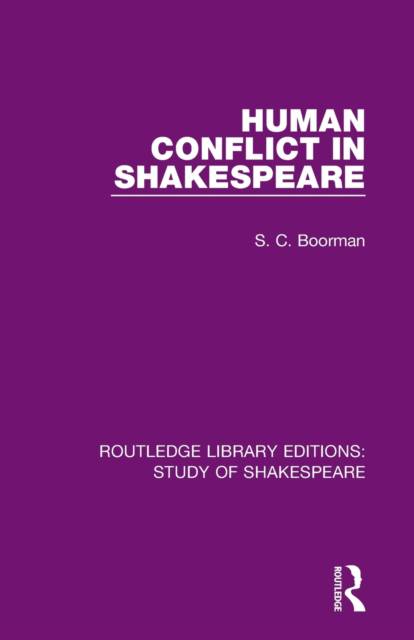
- Retrait gratuit dans votre magasin Club
- 7.000.000 titres dans notre catalogue
- Payer en toute sécurité
- Toujours un magasin près de chez vous
- Retrait gratuit dans votre magasin Club
- 7.000.0000 titres dans notre catalogue
- Payer en toute sécurité
- Toujours un magasin près de chez vous
Description
Conflict is at the heart of much of Shakespeare's drama. Frequently there is an overt setting of violence, as in Macbeth, but, more significantly there is often 'interior' conflict. Many of Shakespeare's most striking and important characters - Hamlet and Othello are good examples - are at war with themselves.
Originally published in 1987, S. C. Boorman makes this 'warfare of our nature' the central theme of his stimulating approach to Shakespeare. He points to the moral context within which Shakespeare wrote, in part comprising earlier notions of human nature, in part the new tentative perceptions of his own age. Boorman shows Shakespeare's great skill in developing the traditional ideas of proper conduct to show the tensions these ideas produce in real life. In consequence, Shakespeare's characters are not the clear-cut figures of earlier drama, rehearsing the set speeches of their moral types - they are so often complex and doubting, deeply disturbed by their discordant natures. The great merit of this fine book is that it displays the ways in which Shakespeare conjured up living beings of flesh and blood, making his plays as full of dramatic power and appeal for modern audiences as for those of his own day. In short, this book presents a human approach to Shakespeare, one which stresses that truth of mankind's inner conflict which links virtually all his plays.
Spécifications
Parties prenantes
- Auteur(s) :
- Editeur:
Contenu
- Nombre de pages :
- 340
- Langue:
- Anglais
- Collection :
Caractéristiques
- EAN:
- 9780367684174
- Date de parution :
- 12-02-23
- Format:
- Livre broché
- Format numérique:
- Trade paperback (VS)
- Dimensions :
- 140 mm x 216 mm
- Poids :
- 394 g

Les avis
Nous publions uniquement les avis qui respectent les conditions requises. Consultez nos conditions pour les avis.






